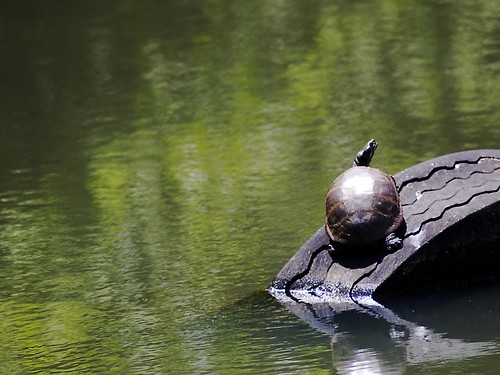I’ve got another post at 3 Quarks Daily, Charlie Keil’s Simple Appeal to the Pope on Behalf of the Future. Here’s a conversation Charlie and I have been having on Facebook:
Charlie Keil: Nice nesting and contexting Bill Benzon! ... I'll spread your commentary and the proposal around as far as I can reach into social media.Some comments:A big YES, to all those Firsts for Francis you list: First Jesuit, First Latin American, etc.And another big YES to making this appeal to people of all religions who will need to form an ecumencal alliance if humans are to turn away from war once and for all.A correction: be clear about the difference between "nations" (ethnic groups, tribes, those sharing values & traditions, peoples, who have a right to self-determination) and "states" (often, but not necessarily, the war-making enemy of anarcho-pacifists like myself and/or the enemy of nations trapped within states).Correcting myself in the light of your highlighting the original St. Francis as putting the Creation, the speciation, before us as God's other "book" to be praised and interpreted constantly. Just as "children's liberation" and full expression can not be accomplished without peace, neither can the diversity of species by saved, strengthened, praised and interpreted properly without ending wars, banning weapons of mass destruction, creating Peace in all meridiens.Bill Benzon: Thanks, CK. I was aware of the "nation" issue when writing the piece. Should have used "nation state" at every point.
Charlie Keil: I'd have to go back to each sentence to see if that would work. I think it is safest, from anthropological, self-determination of peoples, classless society, and human rights points of view to just talk about states as states, because there are so few states made up of just one nation. Even homogeneolus Japan has the Ainu up north, the Okinawans down south, and a long hidden Korean underclass or caste. Whenever you're tempted to use the phrase 'nation state' think of the Kurds existing in the corners of Turkey, Iraq, Iran, Syria and looking for self-determination since before the 1920s, or think of the 200 plus peoples caught in the trap that Lady Lugard named Nigeria.On Behalf of the Future, your phrase keeps me thinking of all the ways that a Papal Peace Initiative opens the key doors to preserving species integrity and diversity, increasing awareness of Children's Rights (European Network of Masters in Children's Rights), and reviving the very essence of Christianity and all the other major religions.Bill Benzon: Ah, but Charlie, THAT's why I use the "nation state" phrase. It's because the USofA was conceived as a nation-state that a large and important class of its inhabitants were defined as 3/5 of a person in the founding documents. Nation-states and nationalism go hand-in-hand. And this leads to a whole conversation about how people locate themselves in the world, aka identity, and that's larger than will fit in these little FB text blocks.
“How people locate themselves in the world”–by which I mean how we make ourselves psychologically at home in this world where we discover ourselves to no longer be animals and find our nevertheless obvious kinship with them to be problematic? Animism is the most basic mechanism, but there are others have evolved, and the nation-state is one. But so are the world-encompassing belief systems of the so-called Axial Age: Taoism, Confucianism, India, Hinduism, Buddhism, Jainism, Zoroastrianism, and Judaism. Christianity, of course, arose as a reform movement within Judaism, as Buddhism was a reform movement within Hinduism.
The nation-state is such an invention as well. People learn to identify with the nation-state within which they live and through it see their position in the world. But, like everything else, this social formation has consequences.
On the first page of his modest, but classic, little study, Ernest Gellner says that “nationalism is a theory of political legitimacy, which requires that ethnic boundaries should not cut across political ones” (Nations and Nationalism, p. 1). Such nationalism has been sorely tested in recent cultural politics in America. The conservative line, it seems to me, has been to insist on the nationalist principle of the alignment between ethnicity and the state, with one version of this even insisting upon an alignment between the (Protestant Christian) church and state.
It’s not clear to me that there we have seen a coherently formulated alternative, just lots of earnest pleading under the rubrics of diversity and multiculturalism. And then there is Gaiaism, reverence for Mother Earth, but how many people take that as anything more than a metaphor. To be sure, some do, but they’ve not yet been able to translate that metaphor into a compelling imaginative and political program. That’s the problem, creating a compelling program that works on the ground, not just in theory, in the sky.
These days we’ve got large multi-national corporations that turn profits by playing the laws of one country against those of another. You sell your goods and services around the world but you take your profits in the country with the most favorable tax laws. There are no doubt individuals within such companies that identify at least as strongly with the company as with whatever nation they’re from. That’s interesting, but it doesn’t strike me as a foundation for universal siblinghood. It’s more like universal bondage.
So there’s a massive psycho-cultural problem to be worked through, how do we make ourselves at home in the world while at the same time embracing diversity of peoples and species? I don’t think it’s going to happen by simply thinking about it. It really WILL have to be thought through and worked through, from the ground up.





No comments:
Post a Comment